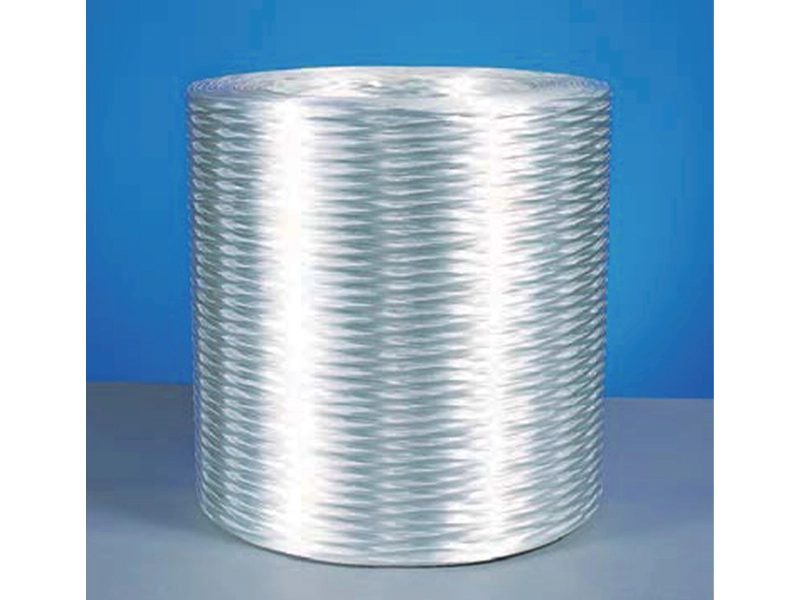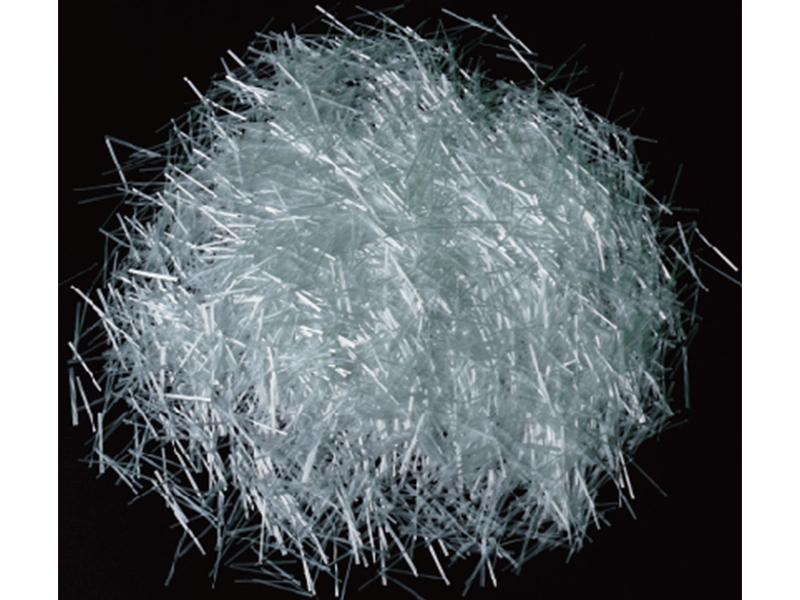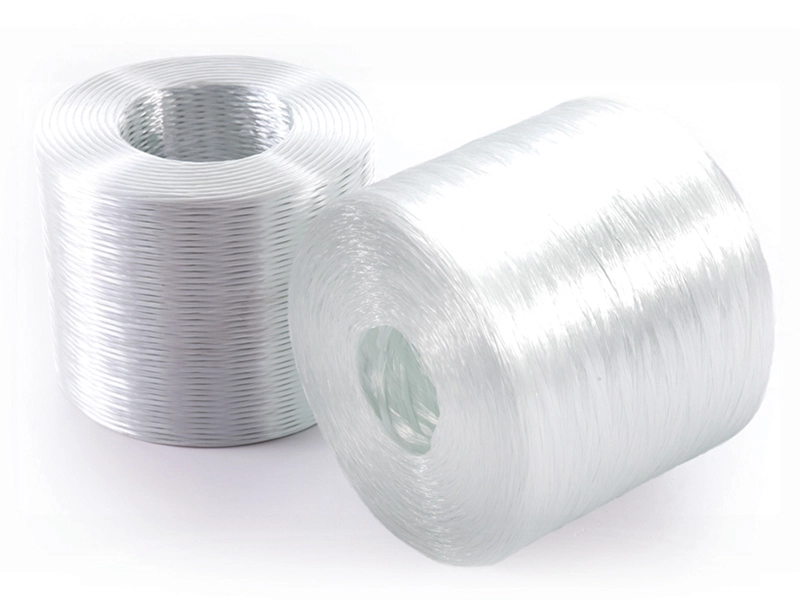Untwisted roving is a key reinforcement material used primarily in the filament winding process for producing composite structures such as pressure vessels, chemical storage tanks, pipes, and wind turbine blades. Unlike traditional yarns or twisted rovings, untwisted roving offers superior resin impregnation, improved fiber alignment, and optimized mechanical performance, making it a critical component in high-strength, corrosion-resistant, and lightweight composite products.
Présentation des performances du produit
The term “untwisted” refers to the absence of intentional twist in the roving. This structural characteristic minimizes gaps between filaments and promotes full utilization of fiber strength, leading to better fiber-to-resin interaction, easier impregnation, and more uniform stress distribution.
2. Filament Winding Process Overview
Filament winding is a fabrication technique that involves winding continuous fiber strands impregnated with resin onto a rotating mandrel. After winding, the resin is cured (typically thermally), and the mandrel is removed to yield a hollow, composite part.
Key Stages in Filament Winding:
-
Fiber delivery: Untwisted roving is pulled from the creel under controlled tension.
-
Resin impregnation: Roving is passed through a resin bath or injection system.
-
Mandrel winding: The fiber is wound onto a rotating mandrel at specific angles (hoop, helical, polar).
-
Guérison: The wound part is cured using heat or UV light to harden the resin.
-
Demolding: The mandrel is removed, and the composite part is trimmed.
Untwisted roving is especially suited for this process due to its dimensional stability, consistent tension handling, and excellent wet-out behavior.
3. Product Characteristics of Untwisted Roving for Winding
| Fonctionnalité | Avantages |
|---|---|
| No Twist | Maximizes tensile strength, minimizes filament misalignment |
| Controlled Linear Density | Ensures consistent thickness and mass flow during winding |
| Excellent Wet-Out | Promotes full fiber-resin contact, improves interfacial bonding |
| Compatible Sizing | Chemically tailored for polyester, vinyl ester, or epoxy systems |
| Low Static Generation | Improves processing stability, reduces fly or fuzz |
| Haute résistance à la traction | Suitable for structural and pressure-bearing applications |
| Uniform Tex Distribution | Reduces variability in part thickness and mechanical properties |
| Optimized Spooling | Compatible with high-speed winding operations |
4. Applications of Untwisted Roving for Winding
4.1 Pressure Vessels
-
Gas storage cylinders (e.g., CNG, hydrogen)
-
Fire extinguishers
-
Air receivers
4.2 Industrial Pipes
-
Chemical-resistant piping
-
Sewer and wastewater pipes
-
Underground ducting
4.3 Tanks and Silos
-
Acid storage tanks
-
Fertilizer tanks
-
Brine and water tanks
4.4 Infrastructure and Energy
-
Wind turbine blades (spar caps)
-
Composite light poles
-
Electrical utility enclosures
4.5 Aerospace and Defense
-
Rocket casings
-
Structural shells
-
Filament wound casings for drones
5. Technical Requirements
Untwisted rovings for winding must meet specific mechanical and processing benchmarks:
| Requirement | Description |
|---|---|
| Linear Density (Tex) | Ranges from 2400 – 9600 tex; selected based on winding speed and part thickness |
| Moisture Content | <0.10% for optimal resin bonding and reduced void formation |
| Diamètre des filaments | 13 – 24 microns, typically uniform for consistent strength |
| Résistance à la traction | > 2000 MPa to meet pressure-bearing standards |
| Compatibilité résine | Sizing must match resin type (polyester, epoxy, vinyl ester) |
| Spool Design | Traverse and tension settings matched to creel and winding setup |
| Unwinding Behavior | Smooth payout, minimal snags or strand breakage |
| Shelf Life | 12–24 months in controlled storage |
6. Technical Data Sheet (TDS)
Nom du produit: Untwisted Roving for Filament Winding
Glass Type: E-glass
Product Form: Continuous, untwisted strands wound onto cylindrical bobbins
6.1 Physical Properties
| Propriété | Typical Value | Méthode d'essai |
|---|---|---|
| Diamètre des filaments | 13 – 24 μm | ISO 1888 |
| Linear Density (Tex) | 2400 / 4800 / 9600 tex | OIN 1889 |
| Moisture Content | ≤ 0.10% | OIN 3344 |
| Loss on Ignition (LOI) | 0.80% – 1.30% | OIN 1887 |
| Densité | 2.6 g/cm³ | ASTM D792 |
| Bobbin Weight | 15 – 25 kg | Internal Standard |
| Package Dimensions | Ø 270mm × H 260mm (customizable) | Manufacturer Spec |
| Couleur | Natural White | Visual Inspection |
6.2 Mechanical Properties
| Propriété | Typical Value | Méthode d'essai |
|---|---|---|
| Résistance à la traction | ≥ 2300 MPa | ASTM D2343 |
| Tensile Modulus | ≥ 72 GPa | ASTM D2343 |
| Elongation at Break | 2.1% – 2.5% | ASTM D2343 |
| Compatibility (Polyester) | Excellent | Wet-Out Rating (1–5) |
| Compatibility (Epoxy) | Excellent | Wet-Out Rating (1–5) |
| Static Buildup | Negligible | Manufacturer Test |
| Resin Wet-Out Time | < 30 seconds | Visual Test |
7. Packaging and Logistics
Emballage
-
Bobbins wound on cardboard tubes (3-inch core diameter)
-
Polyethylene-wrapped, then palletized
-
Pallet: 1.1m × 1.1m, holds 48–64 bobbins depending on size
-
Stretch-wrapped with corner protectors
Labeling
Each bobbin includes:
-
Product code and tex
-
Gross/net weight
-
Batch number
-
Date of manufacture
-
Resin compatibility
8. Storage and Shelf Life
-
Temperature: 15 – 35°C
-
Humidity: ≤ 65% RH
-
Conditions: Keep dry, avoid sunlight and temperature cycling
-
Shelf Life: 12 months under normal conditions; extendable to 24 months in climate-controlled warehousing
9. Processing Recommendations
| Process Parameter | Recommendation |
|---|---|
| Creel Setup | Use low-friction ceramic eyelets or pulleys |
| Tension Control | Maintain 1.0–1.8 N per strand, uniform across bobbins |
| Impregnation | Use resin bath or pressure impregnation system |
| Resin Viscosity | 300–1000 cps depending on fiber speed and part size |
| Mandrel Speed | 50 – 200 RPM (application-dependent) |
| Curing Temperature | 80 – 160°C (resin-specific) |
| Pull Speed | 2 – 6 m/min |
Tips
-
Always condition fiber in production environment for 24 hours before use.
-
Replace damaged bobbins to prevent strand inconsistency.
-
Ensure continuous fiber tension during splicing or bobbin changeover.
10. Health and Safety
Precautions
-
Glass fiber dust may irritate eyes, skin, or respiratory system.
-
Handle with gloves and wear safety glasses during installation.
First Aid Measures
-
Eye contact: Rinse with clean water for 15 minutes.
-
Skin irritation: Wash with soap and water.
-
Inhalation: Move to fresh air, use respiratory protection if necessary.
Refer to the MSDS for full H&S guidance.
11. Quality Standards
| Certification | Description |
|---|---|
| ISO 9001 | Quality Management System |
| ISO 14001 | Environmental Management |
| REACH Compliant | Chemical Safety Regulation |
| RoHS Compliant | Restriction of Hazardous Substances |
| UL, ASTM, or DIN tests | Available upon request |
12. Environmental Considerations
-
Recyclability: Glass fiber offcuts may be reprocessed as filler material.
-
Durabilité: Inert material, non-toxic and durable.
-
Compliance: Meets EU and US regulations for environmental health and safety.
13. Customization Options
Manufacturers can provide tailored variants based on:
-
Tex/yield requirements
-
Resin compatibility (epoxy, polyester, vinyl ester, phenolic)
-
Filament diameter optimization
-
Bobbin size customization for your winding machine
-
Sizing chemistry tailored to specialty applications (e.g., UV resistance, flame retardancy)
14. Manufacturer Technical Support
Top suppliers offer:
-
On-site process optimization
-
Engineering support for mandrel and resin matching
-
Spooling design consultation
-
Fiber testing and quality validation
15. Conclusion
Untwisted roving for winding is a cornerstone material in the filament winding process, valued for its clean fiber alignment, superior wet-out, high strength, and process consistency. Its versatility and performance make it ideal for advanced composite applications in infrastructure, aerospace, automotive, and industrial manufacturing.
With customizable options, robust quality control, and excellent mechanical properties, untwisted roving delivers enhanced productivity and long-term reliability in any high-performance filament winding application.
Untwisted roving for winding
application
Automobile / Biens de consommation et équipements professionnels / Sports et loisirs / Électricité et électronique / Bâtiment et construction / Infrastructure
Type de verre :
E
Nom du produit :
Untwisted roving for winding
FAQ
Q :
Êtes-vous une usine? Où es-tu situé?
UN :
Nous sommes fabricant de caillebotis FRP et de profilés pultrudés, commerçant de matériaux en fils FRP. Nous sommes le plus grand distributeur de China Jushi Co. Nous vendons également des produits de plusieurs fabricants de fils FRP. Nous sommes à Anhui, en Chine.
Q :
Quelles informations sont recommandées pour l'enquête?
UN :
1. De quel tex avez-vous besoin ? 2. Pour quelle application l'utilisez-vous ? Ou la technologie, est-ce le tissage, la pultrusion ou le bobinage ? 3. De quelle quantité avez-vous besoin ? 4. Pour quelle résine combinez-vous ? Résine polyester ou résine époxy ? 5. Avez-vous besoin d'un prix FOB ou CIF, si CIF, veuillez nous indiquer votre port.
Q :
Quel est le MOQ?
UN :
Habituellement 1 tonne
Q :
Emballage et expédition
UN :
Emballage normal : carton (inclus dans le prix unitaire) Emballage spécial : besoin de facturer en fonction de la situation réelle. Expédition normale : votre expédition de fret désignée.
Q :
Quand puis-je offrir ?
UN :
Nous citons généralement dans les 24 heures après réception de votre demande. Si vous êtes très urgent d'obtenir le prix, veuillez nous appeler ou nous le dire dans votre e-mail, afin que nous puissions vous répondre en priorité.
Q :
Comment facturez-vous les frais d’échantillonnage ?
UN :
Si vous avez besoin d'échantillons de notre stock, nous pouvons vous les fournir gratuitement, mais vous devez payer les frais de transport. Si vous avez besoin d'une taille spéciale, nous facturerons les frais de fabrication d'échantillons qui sont remboursables lorsque vous passez une commande.
Q :
quel est votre délai de livraison pour la production?
UN :
Si nous avons des actions, pouvons la livraison en 7 jours ; Si sans le stock, besoin de 7 à 15 jours !
Autres produits connexes




